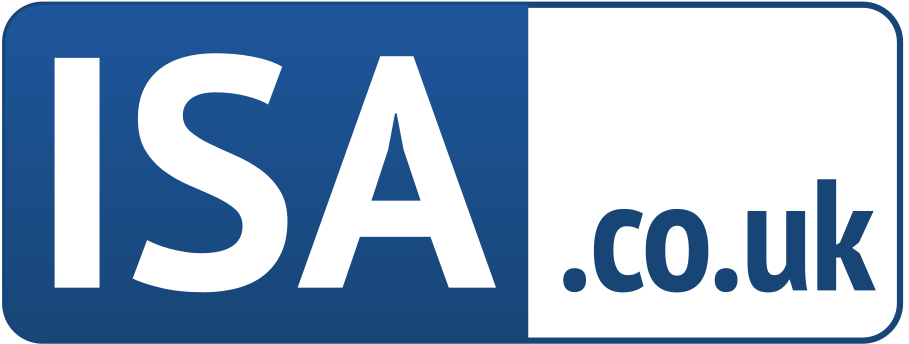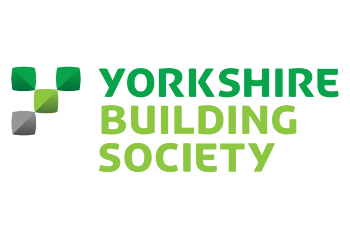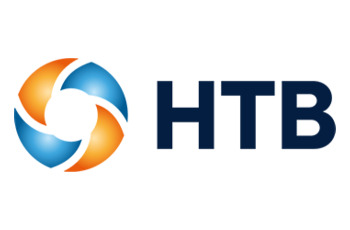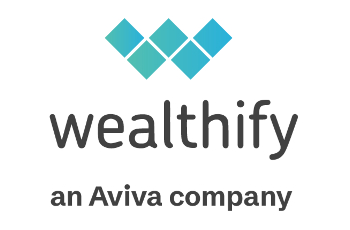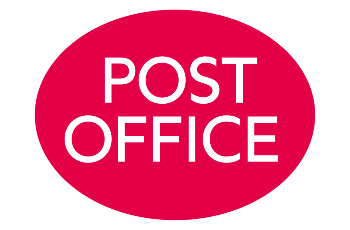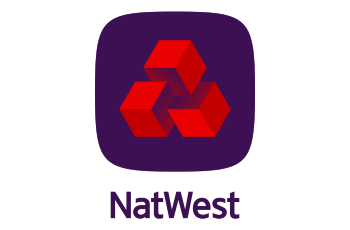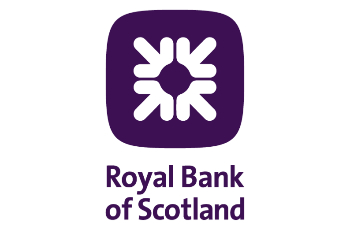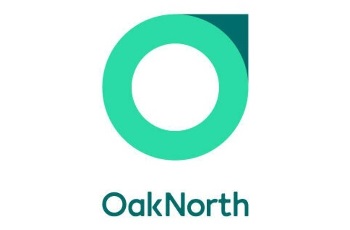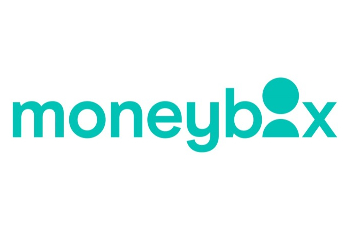Compare Cash ISAs
Pick the best cash ISA to save your tax free allowance.
- Term: 1 Year, with option to make one free withdrawal
- Invest From: £1
Make up to one withdrawal during the 12-month term of this account. Flexible ISA: Withdraw money from your ISA account and pay it back in later. It will not affect your annual allowance, if it’s done in the same tax year. Open from just £1 or transfer in existing ISA funds. Manage your account online. Interest paid at maturity. FSCS Protected. The interest rate is variable and can go up or down. Must be UK resident and aged 18 or older
- Term: Easy Access
- Invest From: £1,000
Interest paid annually. Unlimited deposits and withdrawals. ISA transfers also allowed in. Open and manage online. FSCS Protected. Must be UK resident and be aged 18 or older
- Term: Instant Access
- Invest From: £5,000
Interest paid on account balances over £5,000. No interest paid if balance is below. Tracks Bank of England Base Rate (35 bps under). Unlimited deposits and withdrawals. Interest paid annually. ISA transfers also allowed in. Maximum deposit £1,000,000. FSCS Protected. Winner of Platinum Feefo Trusted Service Award in 2024. Must be UK resident and be aged 18 or older
- Term: Instant Access
- Invest From: £1
4.07% AER 4.00% tax-free p.a (variable), interest paid monthly. Flexible ISA – withdraw and replace funds without affecting your annual ISA allowance. Unlimited deposits and withdrawals. Interest paid monthly. ISA transfers also allowed in. FSCS Protected. Tax treatments depend on your individual circumstances and may change in the future’. Powered by ClearBank: Wealthify will provide the day-to-day servicing of the account with ClearBank providing the account itself. Must be UK resident and be aged 18 or older
Show More- Term: Instant Access
- Invest From: £100
Interest paid annually. Unlimited deposits and withdrawals. ISA transfers also allowed in (some providers charge a transfer fee). Open and manage online. FSCS Protected.. Must be UK resident and be aged 18 or older. After 12 months the interest rate changes to 1.45% AER variable. Online ISA is provided by OneFamily, savings in Post Office Cash ISAs are deposited with Bank of Ireland UK
- Term: Instant Access
- Invest From: £1
Unlimited deposits and withdrawals. Interest paid annually. ISA transfers also allowed in. Maximum deposit £250,000. FSCS Protected. Winner of Platinum Feefo Trusted Service Award in 2024. Must be UK resident and be aged 18 or older
- Term: 1 Year, with option to make three free withdrawals
- Invest From: £1
Make up to three withdrawals during the 12-month term of this account. Tax free ISA account. Open with £1 or transfer in existing ISA funds. Invest up to £20,000 per tax year. Manage your account online. Interest paid at maturity. FSCS Protected. Must be UK resident and aged 16 or older. Make more than three withdrawals and the rate drops to 1.25% AER/gross p.a. (variable). Not available in branch
- Term: 1 Year
- Invest From: £100
Interest paid annually. ISA transfers also allowed in. Open online, in branch or by post. FSCS Protected. Must be UK resident and be aged 18 or older. Withdrawals permitted subject to 90 days lost interest
- Term: 1 Year
- Invest From: £100
Interest paid at maturity. ISA transfers also allowed in. Tax free interest. FSCS Protected. Must be UK resident and be aged 18 or older. No withdrawals permitted. Closure permitted with 90 days’ loss of interest
- Term: 1 Year
- Invest From: £1,000
Terms and Conditions: You must be 18 or over and a UK Resident. Currently you can only subscribe to one Cash ISA with NatWest Bank per tax year. You must hold the account solely in your name. NatWest’s FRISA rates are 4.00% AER/Tax-free p.a. (fixed) for 1 year and 3.80% AER/Tax-free p.a. (fixed) for 2 years. Rate available until 5pm on 31st July 2025 for new customers and 5th August 2025 for existing customers. Offer may be withdrawn early due to limited availability. Interest is calculated daily and paid annually to your ISA on the first business day in April and on the Maturity Payment Date. You can withdraw money from your account up to 19th August 2025. If you want to make a withdrawal after this time and before the Maturity Date, you must close your account by giving written notice in branch. ISA subscription limits apply. If you make a payment into your Fixed Rate ISA you will not be able to make any further payments for that tax year into any other cash ISA with NatWest or Royal Bank of Scotland. Early Closure Charge applies. The Early Closure Charge will be the lower of the amount of interest earned on your account or 90 days’ interest. The Early Closure Charge will be deducted from the balance of your Fixed Rate ISA. The interest payable on the money held in your account is tax-free. The tax treatment may be subject to change in the future and depends on your individual circumstances.
Show More- Term: 1 Year
- Invest From: £1,000
Terms and Conditions: You must be 18 or over and a UK Resident. Currently you can only subscribe to one Cash ISA with Royal Bank of Scotland per tax year. You must hold the account solely in your name. Royal Bank of Scotland’s FRISA rates are 4.00% AER/Tax-free p.a. (fixed) for 1 year and 3.80% AER/Tax-free p.a. (fixed) for 2 years. Rate available until 5pm on 31st July 2025 for new customers and 5th August 2025 for existing customers. Offer may be withdrawn early due to limited availability. Interest is calculated daily and paid annually to your ISA on the first business day in April and on the Maturity Payment Date. You can withdraw money from your account up to 19th August 2025. If you want to make a withdrawal after this time and before the Maturity Date, you must close your account by giving written notice in branch. ISA subscription limits apply. If you make a payment into your Fixed Rate ISA, you will not be able to make any further payments for that tax year into any other cash ISA with Royal Bank of Scotland or NatWest. Early Closure Charge applies. The Early Closure Charge will be the lower of the amount of interest earned on your account of 90 day’s interest. The Early Closure Charge will be deducted from the balance of your Fixed Rate ISA. The interest payable on the money held in your account is tax-free. The tax treatment may be subject to change in the future and depends on your individual circumstances.
Show More- Term: 12 Months
- Invest From: £1
Interest paid monthly. ISA transfers also allowed in. Maximum balance £500,000. FSCS Protected. Must be UK resident and be aged 18 or older. 90-day interest penalty on early withdrawals
- Term: 1 Year
- Invest From: £1
Interest paid at maturity. ISA transfers also allowed in. Maximum deposit £250,000. FSCS Protected. Winner of Platinum Feefo Trusted Service Award in 2024. Must be UK resident and be aged 18 or older. No withdrawals permitted
- Term: 1 Year
- Invest From: £500
Interest paid annually. ISA transfers also allowed in (some providers charge a transfer fee). Open and manage online. FSCS Protected. Must be UK resident and be aged 18 or older. Withdrawals permitted subject to 90 days loss of interest. Online ISA is provided by OneFamily, savings in Post Office Cash ISAs are deposited with Bank of Ireland UK
- Term: 2 Years
- Invest From: £100
Interest paid annually. ISA transfers also allowed in. Open online, in branch or by post. FSCS Protected. Must be UK resident and be aged 18 or older. Withdrawals permitted subject to 180 days lost interest
- Term: 2 Years
- Invest From: £1,000
Terms and Conditions: You must be 18 or over and a UK Resident. Currently you can only subscribe to one Cash ISA with NatWest Bank per tax year. You must hold the account solely in your name. NatWest’s FRISA rates are 4.00% AER/Tax-free p.a. (fixed) for 1 year and 3.80% AER/Tax-free p.a. (fixed) for 2 years. Rate available until 5pm on 31st July 2025 for new customers and 5th August 2025 for existing customers. Offer may be withdrawn early due to limited availability. Interest is calculated daily and paid annually to your ISA on the first business day in April and on the Maturity Payment Date. You can withdraw money from your account up to 19th August 2025. If you want to make a withdrawal after this time and before the Maturity Date, you must close your account by giving written notice in branch. ISA subscription limits apply. If you make a payment into your Fixed Rate ISA you will not be able to make any further payments for that tax year into any other cash ISA with NatWest or Royal Bank of Scotland. Early Closure Charge applies. The Early Closure Charge will be the lower of the amount of interest earned on your account or 90 days’ interest. The Early Closure Charge will be deducted from the balance of your Fixed Rate ISA. The interest payable on the money held in your account is tax-free. The tax treatment may be subject to change in the future and depends on your individual circumstances.
Show More- Term: 2 Years
- Invest From: £1,000
Terms and Conditions: You must be 18 or over and a UK Resident. Currently you can only subscribe to one Cash ISA with Royal Bank of Scotland per tax year. You must hold the account solely in your name. Royal Bank of Scotland’s FRISA rates are 4.00% AER/Tax-free p.a. (fixed) for 1 year and 3.80% AER/Tax-free p.a. (fixed) for 2 years. Rate available until 5pm on 31st July 2025 for new customers and 5th August 2025 for existing customers. Offer may be withdrawn early due to limited availability. Interest is calculated daily and paid annually to your ISA on the first business day in April and on the Maturity Payment Date. You can withdraw money from your account up to 19th August 2025. If you want to make a withdrawal after this time and before the Maturity Date, you must close your account by giving written notice in branch. ISA subscription limits apply. If you make a payment into your Fixed Rate ISA, you will not be able to make any further payments for that tax year into any other cash ISA with Royal Bank of Scotland or NatWest. Early Closure Charge applies. The Early Closure Charge will be the lower of the amount of interest earned on your account of 90 day’s interest. The Early Closure Charge will be deducted from the balance of your Fixed Rate ISA. The interest payable on the money held in your account is tax-free. The tax treatment may be subject to change in the future and depends on your individual circumstances.
Show More- Term: 2 Years
- Invest From: £1
Interest paid annually. ISA transfers also allowed in. Maximum deposit £250,000. FSCS Protected. Winner of Platinum Feefo Trusted Service Award in 2024. Must be UK resident and be aged 18 or older. No withdrawals permitted
- Term: 2 Years
- Invest From: £500
Interest paid annually. ISA transfers also allowed in (some providers charge a transfer fee). Open and manage online. FSCS Protected. Must be UK resident and be aged 18 or older. Withdrawals permitted subject to 180 days loss of interest. Online ISA is provided by OneFamily, savings in Post Office Cash ISAs are deposited with Bank of Ireland UK
- Term: 3 Years
- Invest From: £100
Interest paid annually. ISA transfers also allowed in. Open online, in branch or by post. FSCS Protected. Must be UK resident and be aged 18 or older. Withdrawals permitted subject to 240 days lost interest
- Term: 3 Years
- Invest From: £1
Interest paid annually. ISA transfers also allowed in. Maximum deposit £250,000. FSCS Protected. Winner of Platinum Feefo Trusted Service Award in 2021. Must be UK resident and be aged 18 or older. No withdrawals permitted
- Term: 5 Years
- Invest From: £1
Interest paid annually. ISA transfers also allowed in. Maximum deposit £250,000. FSCS Protected. Winner of Platinum Feefo Trusted Service Award in 2024. Must be UK resident and be aged 18 or older. No withdrawals permitted
- Term: 5 Years
- Invest From: £100
Interest paid annually. ISA transfers also allowed in. Open online, in branch or by post. FSCS Protected. Must be UK resident and be aged 18 or older. Withdrawals permitted subject to 365 days lost interest
Cash ISAs
Make sure you get the best deal possible using our cash ISA comparison tables using your 2025-2026 allowance.
Featured Easy Access ISA
See below deal if you are comfortable accessing your cash ISA via a mobile app.
You also need to be comfortable with only 3 withdrawals annually, so as not to impact the interest rate.
Please note this is a headline market leading rate deal, but the rate includes a bonus rate which is fixed for 3 months.
What is a cash ISA?
A cash Individual Savings Account (ISA) is a tax-free savings account which allows you to save up to a set amount of money per financial year without paying any tax on it; you can check the current cash ISA limit by clicking here. To open an account, you must be a UK resident or Crown employee aged 16 or over. You can only have one cash ISA per tax year, but you can also simultaneously have a different type of ISA, known as a stocks and shares ISA.
Benefits of a Cash ISA
There are three key benefits to a cash ISA:
- No income tax – you don’t pay tax on any interest you earn from the cash in your ISA.
- Easy access – if you choose an instant access cash ISA (rather than a fixed-rate cash ISA), it’s a convenient way to save at a reasonable interest rate while retaining fast and easy access to your money, should you need it.
- Easy transfers – if you find an ISA provider that offers a better deal than your current provider, you can transfer your cash ISA to them.
How much tax can I save with a cash ISA?
The good news is that whatever your tax bracket, you’ll pay 0% tax on any savings held in a cash ISA. Compare this to the usual tax rates on savings:
If you’re a basic rate taxpayer…you would usually pay 20% tax on interest earned from savings.
If you’re a higher-rate taxpayer…you would usually pay a 40% tax on interest earned from savings.
If you pay tax at the additional higher rate…you would usually pay 50% tax on interest earned from savings.
If you pay the ‘savings rate’ of tax for savings…you would usually pay a 10% tax on interest earned from savings.
Using your cash ISA allowance can save you money by allowing you to keep 100% of any interest you earn.
The above information gives you a general idea of what you could save – remember that it depends on your circumstances and may be subject to change.
Can I transfer a cash ISA?
It depends on your circumstances. If you’ve got some money saved as a lump sum from a previous tax year, you’ll usually be permitted to transfer this from one cash ISA to another, or to a stocks and shares ISA. This transfer shouldn’t affect your ISA investment allowance for the current tax year.
Which type of cash ISA is right for me?
An instant access cash ISA might be the right choice for you if…
- You want a good rate of interest, plus the ability to get hold of your money quickly if necessary.
- You want to take advantage of your annual tax-free savings allowance but only have a small amount to deposit – instant access ISAs can be opened from as little as £1.
- You want to be paid regular interest – instant access ISAs usually offer monthly or quarterly interest.
A fixed-rate cash ISA might be right for you if…
- You are happy to put your money aside for a set period – this usually allows you to accrue a higher interest rate than you might get with an instant access cash ISA.
- You want to take advantage of your tax-free savings allowance and have a lump sum to deposit.
Use our services to help you choose
Like any investment option or financial service, it’s essential to research your options before committing to a cash ISA. You might find our services useful for the following:
Comparing cash ISAs, including instant access ISAs and fixed-rate ISAs
Comparing cash ISAs with other savings options
Top tips for making the most of your cash ISA
- You can only have one type of cash ISA in each financial year, so research your options carefully. Whether you choose a fixed-rate or instant access cash ISA, consider your savings goals beforehand to help you determine what’s right for you.
- Remember that you can’t carry your tax-free allowance from one financial year to the next – so if you’ve got enough cash to hit your limit, stash it in an ISA.
- Because a cash ISA operates on a year-long basis, it’s an excellent way to try your hand at saving without committing yourself to anything long-term. It’s also a great way to save for a specific event like a wedding, holiday, or starting a family.
- Once you’ve set up your cash ISA, ensure you still keep an eye on the interest rates available from other providers. You can usually switch cash ISA providers without incurring any charge.
- To make life easier, set up a direct transfer from your current account into your cash ISA to ensure that you put aside a certain amount each month without fail.
- Don’t forget that you’ve got the option of opening a stocks and shares ISA. For more on this, see our page on stocks and shares ISAs.
Frequently Asked Questions
Can I withdraw money from an ISA?
For Cash or Stocks and Shares ISAs, yes, although some Cash ISAs may charge a fee or void your interest if you surrender your policy before the fixed term has ended.
Can I have a Joint ISA?
Are ISA accounts safe?
ISA accounts are authorised and regulated by the Financial Conduct Authority (FCA). This means that all ISA providers are covered by the Financial Services Compensation Scheme (FSCS) for up to £85,000 if they go out of business.
Please note that this may not apply to the underlying holdings within a Stocks and Shares ISA, and will not cover standard investment losses.
Can I transfer a Cash ISA into a Stocks and Shares ISA?
Yes, you can transfer your Cash ISA into a Stocks and Shares ISA by completing a paper form with your new provider.
Can I open a Junior Cash ISA and a Junior Stocks and Shares ISA?
A child can have one Junior Cash ISA and one Junior Stocks and Shares ISA. You cannot exceed the annual allowance of £9,000 between these two accounts combined. They can also only have one of each type of account.
